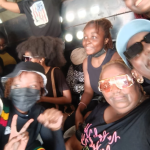Stakeholders have emphasized the critical need for access to education and justice for all children, especially those who have been or are at risk of being in conflict with the law.
They highlighted the importance of ensuring educational opportunities for vulnerable children who are out of school due to various challenges, including child labor, substance abuse, early marriages, insecurity, and natural disasters such as recent floods.
Additional factors contributing to school dropouts include dysfunctional family environments, exposure to community violence, and childhood trauma. Gichuhi Ndegwa, the Ministry of Education’s director of education, underscored that children often find themselves out of school due to circumstances beyond their control, such as exploitation, abuse, or neglect.
The call to action includes:
1. Ensuring Enrollment and Retention: Strategies to enroll and retain children in school despite the barriers they face.
2. Supporting At-Risk Youth: Providing educational and rehabilitative support for children at risk of conflicting with the law or those who have already encountered the legal system.
3. Addressing Root Causes:Tackling the underlying issues that prevent children from accessing education, including family dysfunction, community violence, and natural disasters.
4. Creating Safe Educational Environments:Ensuring schools are safe spaces free from abuse, neglect, and exploitation.
By addressing these factors, stakeholders aim to provide a comprehensive support system that guarantees every child’s right to education and justice, fostering a safer and more equitable society.
“Consequences of lack of education are dire and on the contrary, the benefits are also immense,” Ndegwa said.
“The ministry is reforming the education system to ensure that children receive quality education and remain in schools.”
During the Day of the African Child celebrations, hosted by the Wakilisha Initiative in Nairobi, Ministry of Education Director Gichuhi Ndegwa highlighted the importance of education and justice for all children.
The event, commemorating the 1976 Soweto student protests against poor education, underscored the ongoing need to improve educational access and quality across Africa.
The national celebrations will take place at Mwatate Secondary School in Taita Taveta, aligning with this year’s theme set by the African Committee of Experts on the Rights and Welfare of the Child (ACERWC):
“Education for all Children in Africa: The time is now.” The Wakilisha Initiative focused on “Bridging the gap in access to justice and education for children.”
Ndegwa emphasized that Article 11(1) of the African Charter on the Rights and Welfare of the Child guarantees every child the right to education.
This right is also embedded in Kenyan law, specifically in Article 53(1)(b) and Article 55(a) of the Constitution of Kenya 2010.
The Wakilisha Initiative’s statement noted that children deprived of educational opportunities are more likely to engage in criminal activities due to the lack of prospects for future employment, leading to poverty and despair.
In summary, the event called for:
1. Commemorating Historical Struggles:Remembering the 1976 Soweto student protests and their fight for quality education.
2. National Celebration and Themes: Hosting national celebrations with a focus on education and justice, aligning with continental themes.
3. Legal Codification of Educational Rights:Reinforcing the legal rights to education as stipulated in African and Kenyan laws.
4. Bridging Educational and Justice Gaps:Emphasizing the link between educational deprivation and increased vulnerability to crime.
The celebration underscored the urgent need to provide quality education and justice for all children to ensure their well-being and future success.
“Further, Schools often turn children in conflict with the law (CICL) away due to the negative perception that they are simply troublesome,” the statement read.
“However, many are victims of exploitation, abuse and neglect.
Protecting their right to education offers them the chance to rebuild their lives, escape poverty and reduce recidivism.”
Ndegwa who spoke on behalf of the State Department of Basic Education PS Belio Kipsang noted the right to basic education is for all children without any form of discrimination.
He said the Ministry of Education’s strategies focus as alluded to in the recently launched National Education Sector Strategic Plan 2023-2027 includes, access and participation, equity and inclusivity, quality and relevance, governance and accountability as well as cross-cutting and pertinent issues.
“The Ministry is making a deliberate effort to ensure that all children of school-going age are in school,” Ndegwa added.
“This includes the policy of 100 per cent transition from primary to secondary school which has led to increased enrolment. Measures to improve retention have also been taken, key among them being the provision of free primary and free day secondary education.”
Ndegwa also said reforms by the ministry are at advanced stages following the report of the presidential working party on educational reforms, the subsequent drafting of a sessional paper and a review of 13 relevant acts of parliament.
“Once these drafts views that are in the sessional paper are submitted, discussed and approved by parliament, they will be entrenched in law and then the reforms will be rolled out successfully.”
National Council for Children’s Services children officer Effie Molly noted that children who are in conflict with the law should gain access to equal basic education as their peers when they are taken to remand homes.
She said they should also get help in nurturing their life skills so that by the time they leave the remand homes, they would have acquired basic education and other necessary life skills that put them on par with their peers.
“Children in conflict with the law usually take two weeks to six months in the remand homes so this doesn’t mean that the fact that they are in remand homes, they shouldn’t gain access to basic education or be discriminated against,” Molly said.
“We all know that when children are empowered, the society is also empowered and according to the Children ACT 2022, section 13, all children should have access to free and compulsory basic education. It is up to us as the larger community to ensure that children who are in conflict with the law get access to justice and equitable basic education.”
Speaking on behalf of CSOs, ChildFund’s child protection and advocacy manager David Mariba called on the government to ensure there is equitable distribution of resources across the education system while involving all the right stakeholders.
He also called for the adoption of quality education coupled with proper infrastructure and learning resources as well as access to proper nutrition, clean water and sanitation for vulnerable children.
“Government should also adopt modern technology to enhance education and parents should enhance their digital skills while at home to be able to help their children navigate the online space,” he added.
He also called on the government to adopt the safety by design measure where tech institutions develop platforms that are child-friendly to ensure safer use of the internet by children.
“We also should not forget children who are in conflict with the law. When they are in the process of accessing justice, it should be done in a child-friendly manner that does not traumatise them and they should also be given access to quality basic education,” he said.



